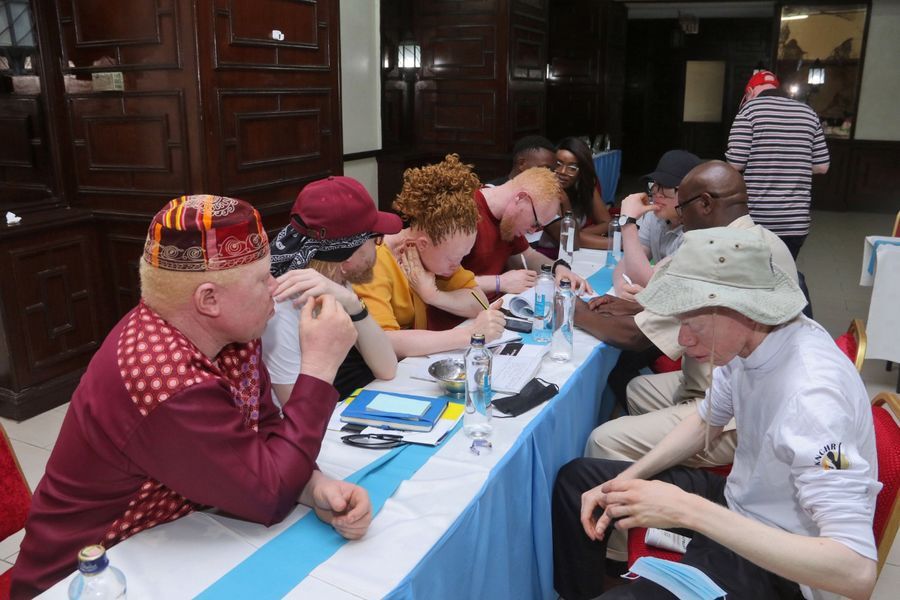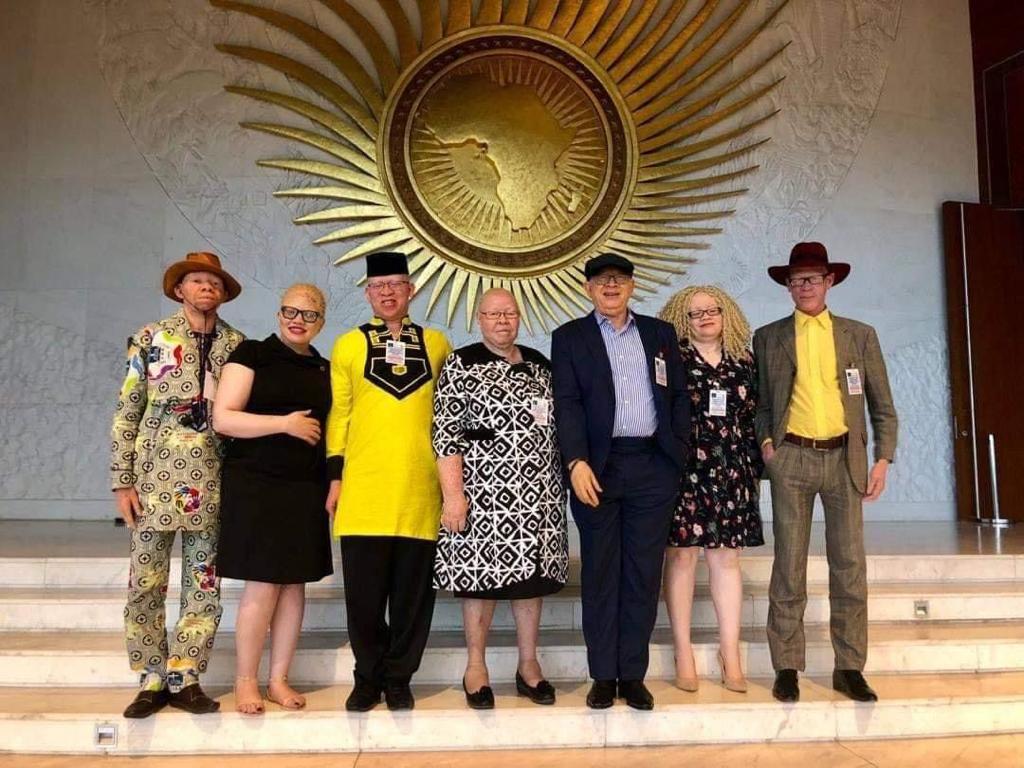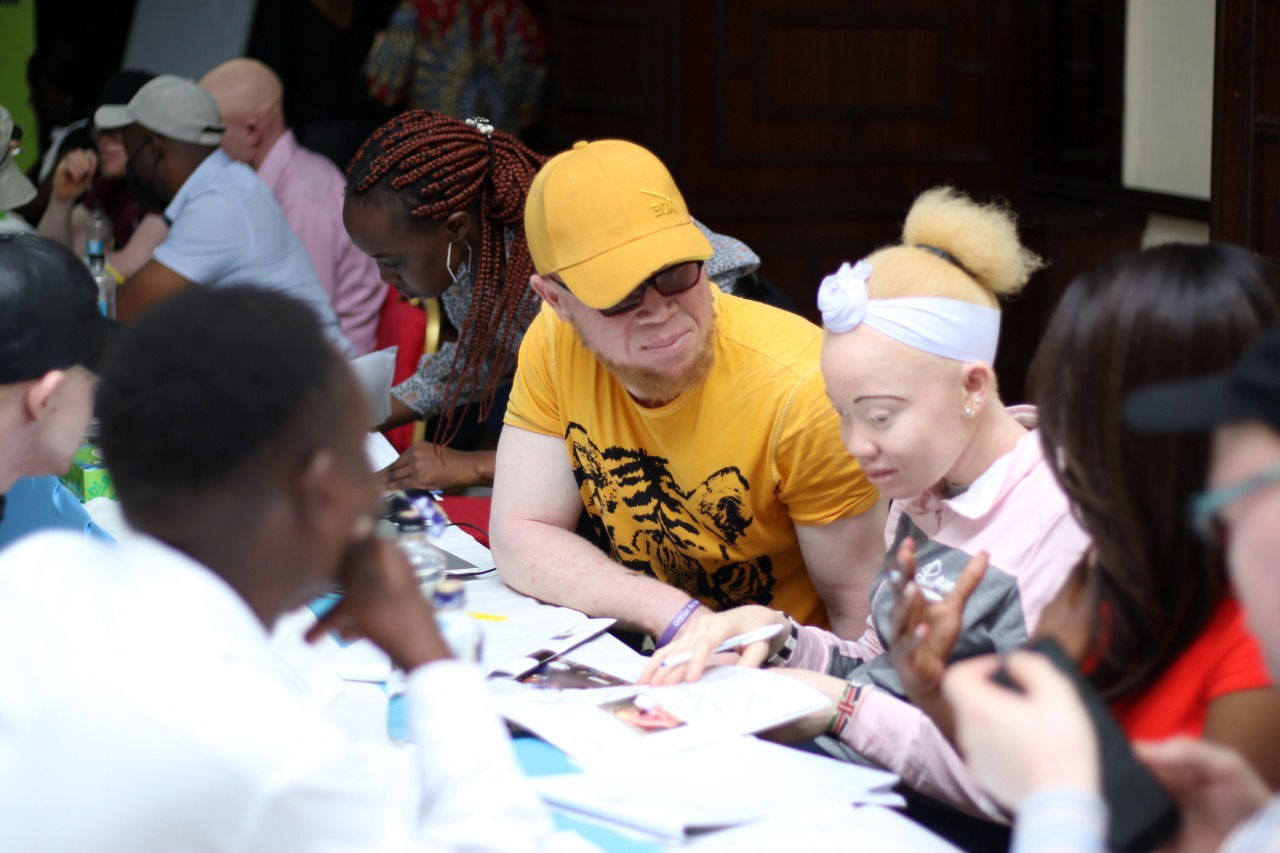UNLOCKING HOPE AND EQUALITY: THE AFRICA ALBINISM NETWORK'S IMPACT IN KENYA AND BEYOND
The history of albinism in Africa is complex, marked by both adversity and resilience. Albinism, a genetic condition characterized by the absence of melanin pigment in the skin, hair, and eyes, has deep roots in the continent's diverse societies. While some African cultures historically viewed and still view individuals with albinism with reverence or as spiritual beings, others harbored superstitions and fear, leading to discrimination and exclusion.
The modern history of albinism in Africa has been marred by horrifying instances of violence and persecution, with persons with albinism often targeted for their body parts as a result of the harmful superstitions. However, in recent years, awareness campaigns, advocacy groups like the Africa Albinism Network, and legal protections have begun to challenge these deep-rooted prejudices, offering hope for a more inclusive future for individuals with albinism in Africa.
AFRICA ALBINISM NETWORK
The Africa Albinism Network is committed to a vision of creating an inclusive world where persons with albinism can live free from brutality and discrimination. Their mission is to promote the implementation of the African Union (AU) Plan of Action to End Attacks and Other Human Rights Violations Targeting Persons with Albinism in Africa (2021-2031). This mission is not confined to theory; it's a call to action, an unwavering commitment to making tangible changes in the lives of persons with albinism across the African continent.

A picture of persons with albinism at a table during a conference held by the Africa Albinism Network.
PARTNERSHIPS FOR PROGRESS
The key to Africa Albinism Network’s (AAN) success lies in its commitment to building strong partnerships with organizations that represent persons with albinism across the African continent. AAN recognizes the importance of implementing the AU Plan of Action on albinism at the national level, ensuring that tangible measures and multi-year budgets are in place to actualize the plan of action. This approach ensures that the positive effects of these established measures manifest into improved enjoyment of human rights by persons with albinism throughout Africa.
LEARNING FORUMS - DAR ES SALAAM 2023
One of the notable initiatives undertaken by the Africa Albinism Network is the organization of a Learning Forum held in Dar es Salaam, Tanzania, in February 2023. This event successfully assembled more than 70 participants, including representatives from 36 albinism advocacy groups originating from 13 different African nations. The primary objective of this forum was to facilitate knowledge sharing, mutual learning, and the development of strategies aimed at advancing the rights and well-being of individuals with albinism while utilizing the AU Plan of Action on Albinism as a guiding framework.
Participants were provided with valuable opportunities to engage in networking and fostering collaborative efforts among diverse organizations and nations. Additionally, the forum featured workshops focused on crucial subjects such as the formulation of concept notes, crafting of proposals for potential funding partners and equipping attendees with practical skills essential for driving positive change.

A group photo of some persons with albinism during a conference held by Africa Albinism Network.
AAN'S REACH ACROSS AFRICA
AAN's impact extends across the African continent. The organization is active in Uganda, Zambia, Malawi, Tanzania, Mozambique, Zimbabwe, South Africa, Namibia, and Angola, demonstrating their dedication to making a difference on a continental scale.
ADVOCACY ON GLOBAL STAGES
AAN is not limited to national efforts. They also engage in advocacy at international forums such as the African Union and the United Nations. Their presence on these platforms allows them to influence policies and actions in response to the challenges faced by persons with albinism and their families. With this, voices of persons with albinism are represented and heard on large platforms thus change and effective measures can be taken from those platforms trickling down to the national level.

A photo taken when Angola adopted the National Action Plan on Albinism.
THE AU PLAN OF ACTION - A GUIDING LIGHT
The African Union Plan of Action on Albinism (2021-2031) serves as the guiding document for Africa Albinism Network’s work. It outlines a ten-year roadmap to address attacks and discrimination against persons with albinism. The Plan sets out specific activities, identifies responsible entities (including member states, ministries, and partner organizations), and includes indicators and data sources to monitor progress. This comprehensive approach allows policy planners and implementers to adapt the Plan of Action to the unique context of each country or region.

A picture focusing on two persons with albinism during a conference held by Africa Albinism Network.
The Africa Albinism Network serves as a powerful testament to the strength of united efforts and an unyielding dedication to justice and fairness. Their collaborative partnerships, advocacy initiatives, and resolute commitment to implementing the AU Plan of Action on Albinism are guiding the path towards a more promising future for individuals with albinism throughout the African continent. They persistently instill hope, promote inclusivity, and actively catalyze positive transformations in the lives of those who have endured marginalization for far too long.